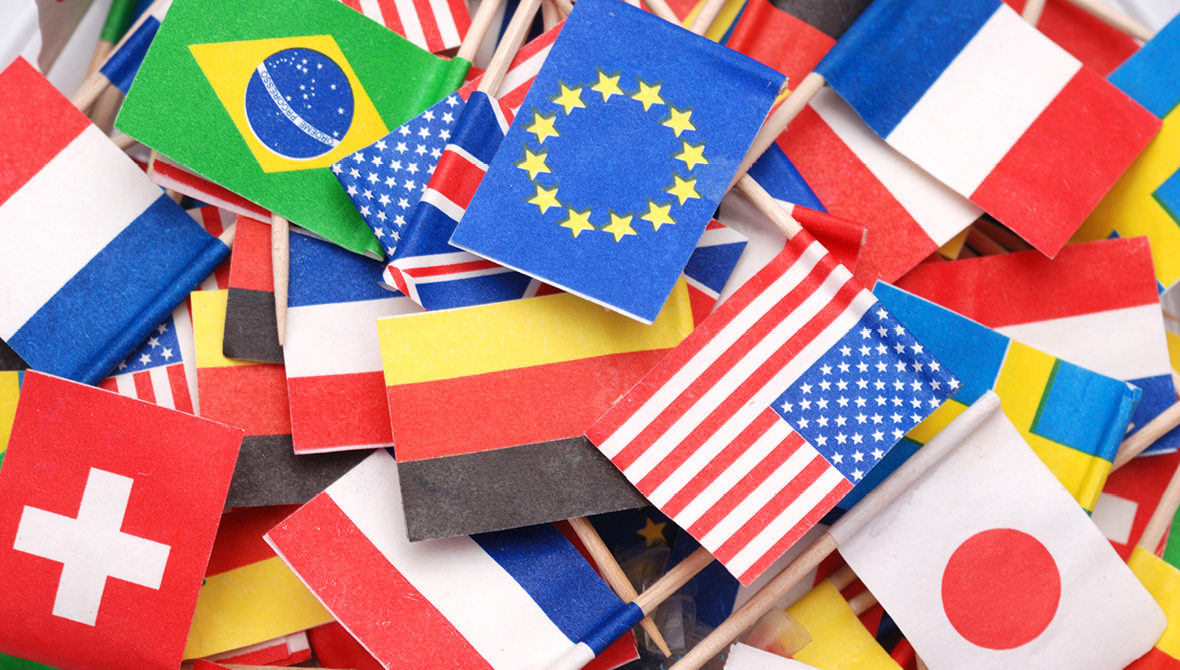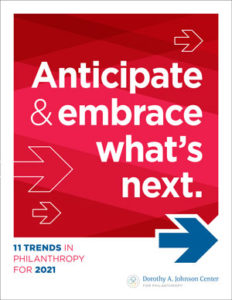From International Grantmaking to the Globalization of Philanthropy


 On March 10, 2020, the Bill & Melinda Gates Foundation announced a partnership with Wellcome Trust and Mastercard to create the COVID-19 Therapeutics Accelerator (CTA). The purpose of this $125 million initiative was “to speed-up the response to the COVID-19 epidemic by identifying, assessing, developing, and scaling-up treatments” and to provide “equitable access, including making products available and affordable in low-resource settings” (Bill & Melinda Gates Foundation, n.d.). On the surface, this announcement reinforces a traditional idea of international grantmaking, wherein the generosity of the wealthiest Americans is directed to supporting a noble global cause. From the Rockefeller Foundation’s launch of the Green Revolution to Ted Turner’s $1 billion donation to the United Nations, the twentieth century has numerous examples of this tradition (Zunz, 2012). In this case, the tradition is updated in that the source of wealth is technology and social media, not oil and steel. It would seem, in its magnitude, ambition, and innovation, this initiative exemplifies American philanthropy’s leadership in international grantmaking.
On March 10, 2020, the Bill & Melinda Gates Foundation announced a partnership with Wellcome Trust and Mastercard to create the COVID-19 Therapeutics Accelerator (CTA). The purpose of this $125 million initiative was “to speed-up the response to the COVID-19 epidemic by identifying, assessing, developing, and scaling-up treatments” and to provide “equitable access, including making products available and affordable in low-resource settings” (Bill & Melinda Gates Foundation, n.d.). On the surface, this announcement reinforces a traditional idea of international grantmaking, wherein the generosity of the wealthiest Americans is directed to supporting a noble global cause. From the Rockefeller Foundation’s launch of the Green Revolution to Ted Turner’s $1 billion donation to the United Nations, the twentieth century has numerous examples of this tradition (Zunz, 2012). In this case, the tradition is updated in that the source of wealth is technology and social media, not oil and steel. It would seem, in its magnitude, ambition, and innovation, this initiative exemplifies American philanthropy’s leadership in international grantmaking.
But take a closer look, and rather than other nations conforming to a U.S model of philanthropy, you will find the emerging trend of the globalization of philanthropy, which is a dynamic process in which actors exchange ideas and practices and engage in shared learning.
In 2018, Franklin and Moody observed that “philanthropy around the world is adopting similar — often westernized — structures, policies, and strategies” (para. 1), and they agreed with critics of the globalization of philanthropy who warned of “the danger of a sort of new philanthropic colonialism” (para. 7). The global response of philanthropy to the crises propagated by the pandemic — including public health, economic dislocation, and intensified calls for racial justice and equity — have underlined the ways in which the globalization of philanthropy has not simply entailed the adoption of U.S. or western understandings, institutions, and practices. Rather, the crisis has highlighted the ways in which actors from around the world have emerged as equal partners in practicing, influencing, and even reshaping the practice of philanthropy, including in the U.S.
“[R]ather than other nations conforming to a U.S. model of philanthropy, you will find the emerging trend of the globalization of philanthropy, which is a dynamic process in which actors exchange ideas and practices and engage in shared learning.”
An examination of the other contributors to this initiative highlights key elements of this trend, beginning with the Gates Foundation’s founding partners in creating the CTA. The Wellcome Trust is a U.K. charity and leading global funder for public health. The funding from Mastercard came from its Impact Fund, which was created in 2018 when, “Mastercard committed 20 percent of its savings from U.S. and European tax reform” (para. 3). This commitment of up to $500 million in charitable grants offers an implicit critique of a public policy of tax cuts and the concomitant reduction in public investment, and takes corporate social responsibility to the next level.
Taken together, the three founding partners and the 13 additional donors embody a number of key developments in the globalization of philanthropy:
When U.S. foundations began to export the community foundation model, it became obvious that there were flourishing traditions and practices of mutual self-help around the world. For example, based on research in South African communities, Wilkinson (2017) highlighted the importance of horizontal philanthropy, which implies philanthropy arising from members of community rather the top-down model of international development assistance. The conversation evolved from the applicability of the institutional form of the community foundation into an exploration of the concept and practice of community philanthropy, which arose from two key recognitions. First, that the narrowly construed U.S. model of an endowed, grantmaking foundation with a geographic focus was of limited utility in other nations, legally, conceptually, and practically. Second, that the tradition and practice of communities mobilizing their resources and engaging with each other to address shared challenges was present in a multitude of forms across the globe.
Increasingly, community foundations in the U.S. are prioritizing community engagement. This emphasis is epitomized by CFLeads’ initiative, “Going All In,” which emphasizes the importance of community foundations exercising leadership in terms of racial equity, amplifying community voice, and influencing public policy (2020).
Now that tortillas outsell white bread and salsa has dethroned ketchup, we can recognize that globalization is a two-way street and that philanthropy in the U.S., just like our cuisine, stands to gain by incorporating ingredients from beyond our borders.
Bill & Melinda Gates Foundation. (n.d.). Bill & Melinda Gates Foundation, Wellcome, and Mastercard Launch Initiative to Speed Development and Access to Therapies for COVID-19. https://www.gatesfoundation.org/Media-Center/Press-Releases/2020/03/COVID-19-Therapeutics-Accelerator
The Bush Record. (n.d.). President Bush’s global health initiatives are saving lives around the world. The White House Archives. https://georgewbush-whitehouse.archives.gov/infocus/bushrecord/factsheets/globalhealth.html
CFLeads. (2020, September). Going all in: Insisting on racial equity, amplifying community voice, and influencing public policy and systems. https://cfleads.org/wp-content/uploads/2020/09/Printable_Summary_9.16.20-for-web.pdf
Franklin, J., & Moody, M. (2018, Jan. 1). The globalization of philanthropy. 11 trends in philanthropy for 2018. Dorothy A. Johnson Center for Philanthropy. https://johnsoncenter.org/blog/the-globalization-of-philanthropy
Hanson, D. (2018). The 20 most charitable athletes in the world. Money Inc. https://moneyinc.com/most-charitable-athletes-in-the-world
Johnson, P. (2018). Global philanthropy report: Perspectives on the global foundation sector. Harvard Kennedy School, the Hauser Institute for Civil Society at the Center for Public Leadership. https://cpl.hks.harvard.edu/publications/global-philanthropy-report-perspectives-global-foundation-sector
Mastercard Impact Fund. (n.d.). Mission and vision. https://www.mastercardcenter.org/about-us
One in An ARMY. (n.d.). Black Lives Matter. https://www.oneinanarmy.org/black-lives-matter
Wike, R., Fetterolf, J., & Mordecai, M. (2020, September 15). U.S. image plummets internationally as most say country has handled coronavirus badly. Pew Research Center. https://www.pewresearch.org/global/2020/09/15/us-image-plummets-internationally-as-most-say-country-has-handled-coronavirus-badly
Wilkinson, S. (2017). #ShiftThePower: Community giving as a critical consciousness-raising tool. The Foundation Review, 9(3), 77–87. https://doi.org/10.9707/1944-5660.1378
Zaveri, M. (2020, June 8). BTS fans say they’ve raised $1 million for Black Lives Matter groups. The New York Times. https://www.nytimes.com/2020/06/08/arts/music/bts-donate-black-lives-matter.html
Zunz, O. (2012). Philanthropy in America: A history. Princeton University Press.